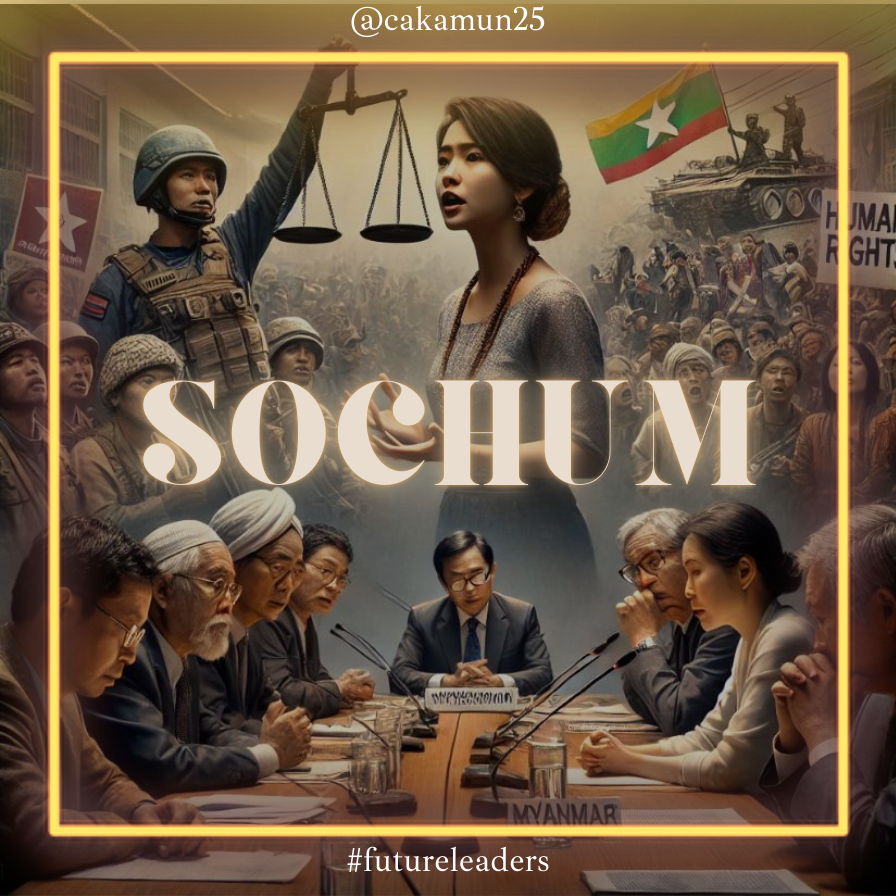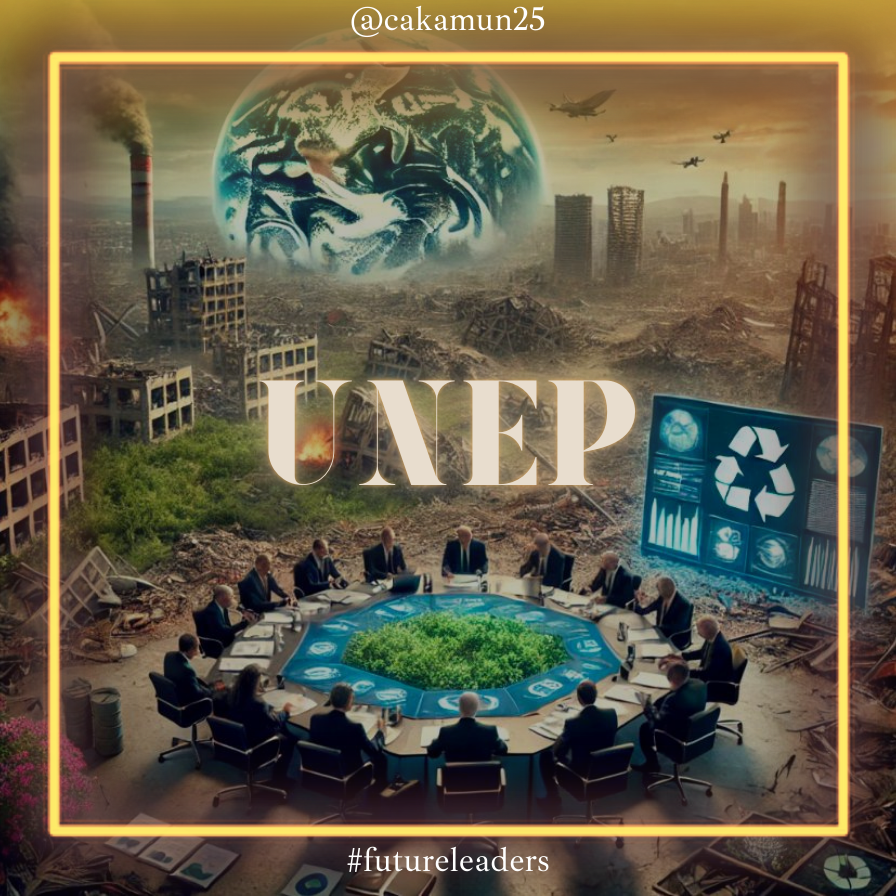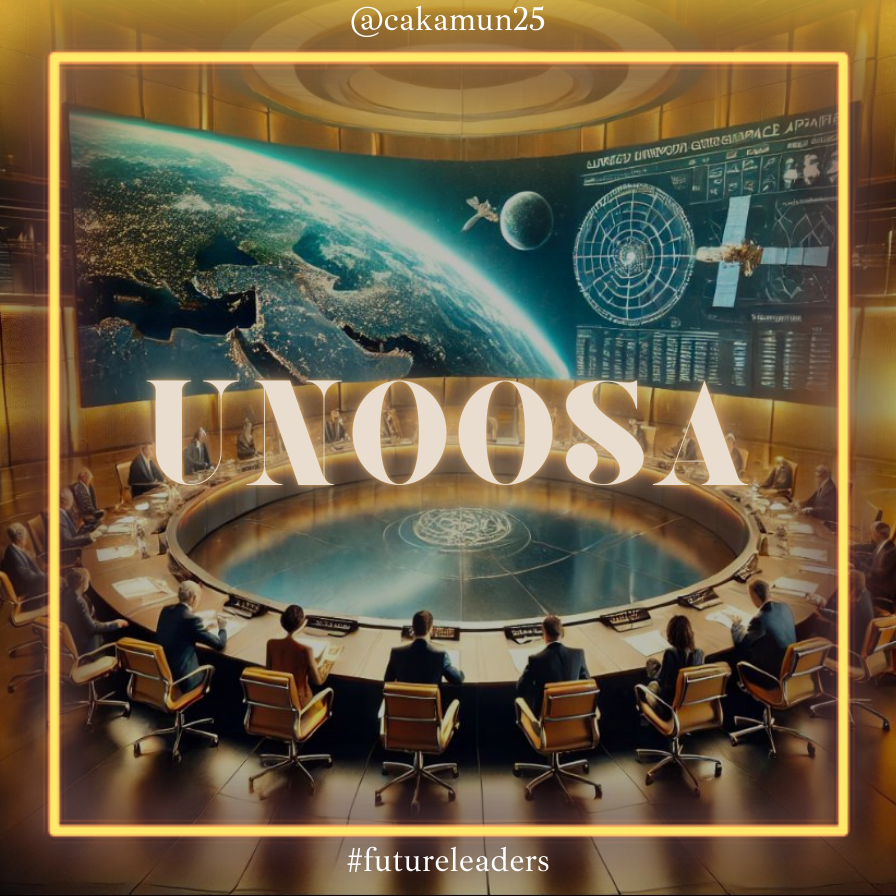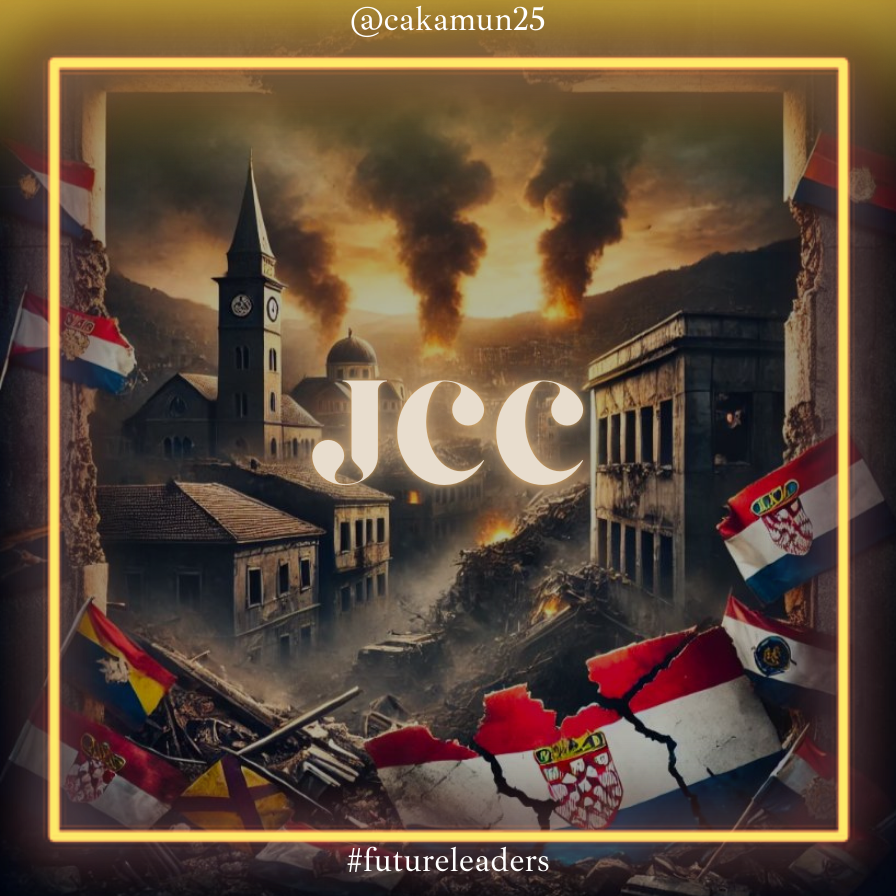COMMITTEES

Social Cultural and Humanitarian Committee (SOCHUM) (beginner)
1-The protection of human rights in Myanmar.
Myanmar has faced ongoing human rights violations, including political repression, ethnic persecution, and military crackdowns on civilians. International frameworks such as the Universal Declaration of Human Rights and the ASEAN Human Rights Declaration emphasize the need for protection, but enforcement remains difficult due to political instability. Addressing these issues requires diplomatic pressure, humanitarian aid, and support for democratic institutions to ensure the safety and rights of all citizens
.2-Preventing cultural regression in developing nations.
Developing nations often face cultural regression due to economic hardships, political instability, and globalization, which can erode traditional values and heritage. Organizations like UNESCO work to preserve cultural identity through education, heritage conservation, and policy advocacy. Sustainable development strategies must balance modernization with cultural preservation to maintain societal cohesion and historical continuity.

United Nations Environment Program (UNEP) (beginner)
1-Environmental regulations in areas affected by armed conflicts.
Armed conflicts often lead to severe environmental degradation, including deforestation, pollution, and ecosystem destruction. International laws like the Geneva Conventions and the Environmental Modification Convention aim to limit such damage, but enforcement remains a challenge. Post-conflict recovery requires integrating environmental restoration into peacebuilding efforts to safeguard biodiversity and promote long-term recovery.
2-Transformation of food systems to prevent biodiversity loss.
The global food system plays a main role in biodiversity loss through deforestation and monoculture farming of resources. Shifting towards agroecology, plant-based diets, and sustainable agricultural practices, along with reducing food waste and promoting indigenous knowledge, are important steps to preserve ecosystems and ensure food security for future generations.

United Nations Office for Outer Space Affairs (UNOOSA)(intermediate)
1-Building norms to govern behavior in space so that it is peaceful and sustainable for the benefit of all.
The United Nations Office for Outer Space Affairs (UNOOSA) is a United Nations office established in 1958 to promote international cooperation in the peaceful use and exploration of outer space. It serves as the secretariat for the Committee on the Peaceful Uses of Outer Space (COPUOS), facilitating legal and technical discussions among member states.
UNOOSA's mission includes developing international space law and policies, maintaining the Register of Objects Launched into Outer Space, and assisting countries, especially developing nations, in leveraging space science and technology for sustainable development.

Joint Crisis Committee (JCC) (advanced)
1-Yugoslavia’s parting.
As Yugoslavia broke up in the 1990s, the Socialist Federal Republic was divided into several countries. Originally made up of six republics (Slovenia, Croatia, Bosnia and Herzegovina, Montenegro, North Macedonia, and Serbia) with Kosovo as an autonomous province, growing nationalism, ethnic tension, and economic hardships fueled aspirations for independence, particularly in Slovenia, Croatia, and Bosnia. In 1991, Slovenia and Croatia gained their independence, sparking wars characterized by ethnic violence and genocide, including the Bosnian and Croatian wars. Joint NATO and UN operations in 1992 peace accords like the 1995 Dayton Agreement ending the Bosnian War and the eventual breakup of Serbia and Montenegro in 2006 contributed to the region's increased stability. Following Yugoslavia's complete collapse, the region was left with lingering political and ethnic tensions.